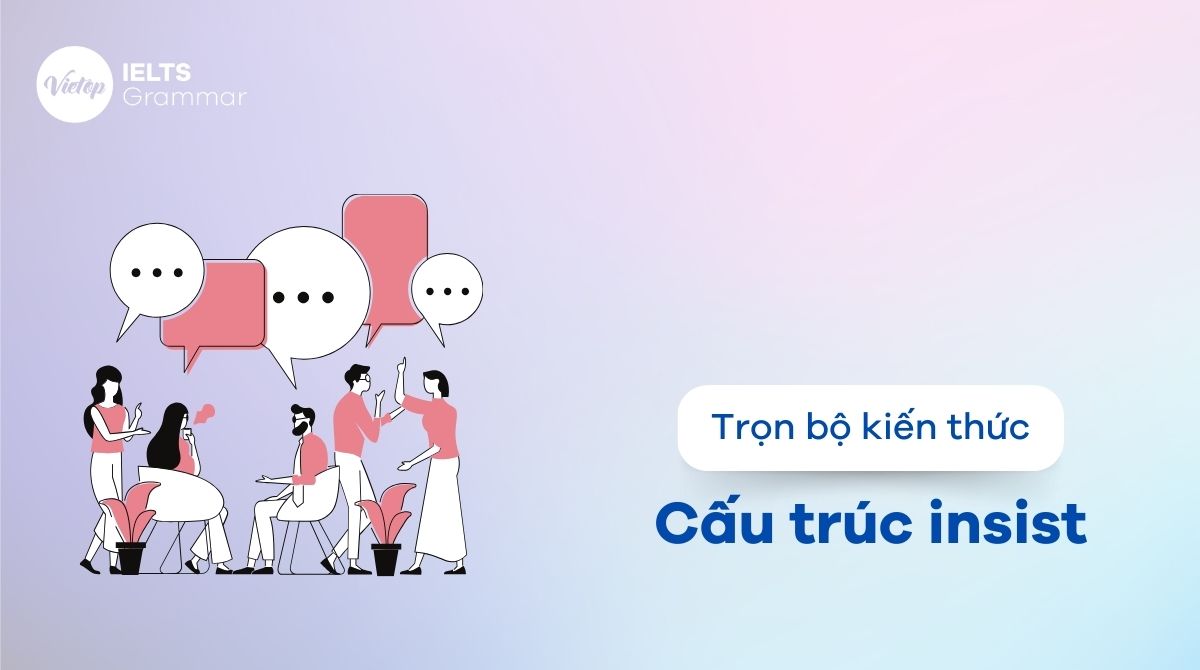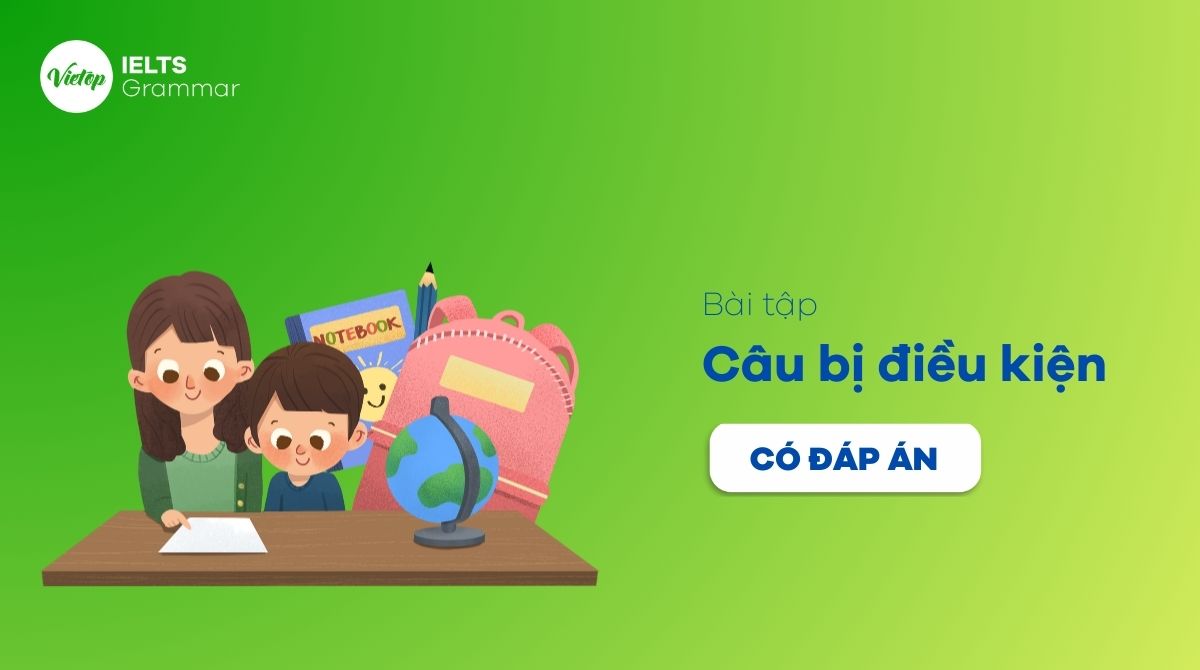Ở phần thi IELTS Speaking Part 1 sẽ bao gồm những câu hỏi không quá khó, cho nên bạn phản trả lời thật chính xác để lấy trọn điểm ở phần này và lấy động lực cho các phần thi còn lại.
IELTS Vietop đã tổng hợp và chia sẻ với bạn 60 chủ đề ở bài thi IELTS Speaking part 1 phổ biến nhất. Các bạn cùng tìm hiểu nhé!
A. Thông tin cần biết về phần thi IELTS Speaking Part 1

Thông thường, phần thi IELTS Speaking Part 1 sẽ kéo dài trong khoảng 4-5 phút. Giám khảo sẽ đặt khoảng 8-10 câu hỏi về các chủ đề quen thuộc. Để đạt được điểm cao ở phần thi này, thí sinh cần thể hiện khả năng nói một cách lưu loát, trôi chảy.
Phần thi này được xem là một cuộc phỏng vấn “nhỏ” để giúp thí sinh đỡ căng thẳng, đồng thời qua các câu hỏi đó giám khảo sẽ nắm được nhưng thông tin cơ bản của thí sinh.
B. 60 chủ đề IELTS Speaking Part 1 thường gặp

Phần thi IELTS Speaking Part 1 thường là những câu hỏi về các chủ đề quen thuộc thường ngày. Dưới đây là một vài chủ đề về IELTS Speaking Part 1 tổng hợp được, tham khảo để cùng ôn luyện thôi nào!
1. Accommodation
Do you live in a house or an apartment?
I live in a house that is located in a small alley in district 3 with my family. Because district 3 is considered as the heart of Ho Chi Minh city, all amenities are available within walking distance, like markets, churches, hospitals and all kinds of fashion shops and restaurants. That means I can easily grab anything I need in just a few minutes. So I really enjoy my life there.
- Alley (n): con hẻm
- Amenities (n): đồ dùng thiết yếu
Would you like to move to a different home in the future?
Although my current accommodation is perfectly fine, I would love to experience living in a cottage once. Since it was my childhood dream to live near a forest, a small thatched-roof and rustic house located quietly at the edge of a jungle would be my dream house.
It would be made of timber and have 2 rooms, one’s for me and the other is for the guests. It sounds small but it would be cozy and fully-furnitured by only environmentally friendly interior ornaments and other necessary mod cons.Đặt
- Cottage (n): nhà chòi
- Thatched-roof (adj): có mái lợp bằng lá
- Interior ornaments (n): phụ kiện, nội thất
3. How is your apartment decorated?
My home is styled in a minimal way. Almost everything is painted in plain white, and a few landscape paintings and all small blue modern ornaments act as delicate touches. The interior design is simple, yet convenient and very pleasant to look at.
- Plain white (adj): trắng tinh
- Delicate (adj): tinh tế
Xem bài mẫu và nghe audio tại: Topic Accommodation – IELTS Speaking Part 1
2. Giving gifts
- Do you like giving or receiving gifts?
I guess even the smallest gift can bring a smile to my face, because who doesn’t love to receive free stuff anyway? On the other hand, I’m pretty inarticulate and not good at putting things into words so I often give people a gift to show how much I care about them.
- Bring a smile to one’s face: khiến ai đó cười
- Inarticulate (adj): không giỏi diễn đạt bằng lời nói
- What kind of gifts do you like to receive?
I guess I would love to receive things that can be put into daily use, rather than something I have to keep in the cupboard, so it can be an item of clothing, a coffee mug, or even a rug for my bathroom. I don’t care much about the cost of the gift, but its capability is what matters to me.
- When do people give gifts or presents in your country?
Well, people give gifts on special occasions such as birthdays, weddings, graduation day or house-warming parties. Well, but I believe if you truly love someone, you can always give them a gift for no particular reason.
4. When did you last receive a gift?
I just turned 18 last month, so on my birthday my friends bought me a bunch of presents, but I particularly love the beautiful white dress my best friend Susan got me. We see eye to eye in fashion and clothing so she picked the exact dress that I’ve always wanted and I’ve been wearing it very often.
- See eye to eye: có cùng quan điểm
3. Colours
- Were colours important to you when you were a child?
Well yes, I’ve always loved colours but my favourite has always been blue. I had my mom buy me toys and clothes that were all blue. Up until now, blue is still my favourite colour and it’s become a part of my identity.
- Have s.o do something: thuyết phục ai đó làm điều gì
- Up until now: cho đến bây giờ
- Identity (n): cá tính, đặc tính
- Are there any colours that have a special meaning in your country?
Yes, of course, red is the colour that represents good luck. That’s why at Tet, our holiday during the Lunar New Year, you often see the elderly and parents hand red envelopes containing “lucky” money to their children and grandchildren.
- Represent (v): đại diện
- Hand (v): đưa cho (hiểu là cho/ tặng)
- Red envelopes: bao đỏ/bao lì xì
- What colours would you choose to paint the walls of your room?
I’ve mentioned earlier that I absolutely love blue, so without a doubt, that’s my go-to color. I would also consider combining it with white since that’s my second favorite color.
- Go-to (adj): yêu thích
- Consider + v-ing: cân nhắc việc gì đó
4. Neighbors
- Do you like your neighbors?
Yes, we have a very close relationship, we share too much in common and we love and support each other. I love my neighbors as my nearest and dearest.
- Are your neighbors usually close to each other in your country?
Absolutely yes. In Vietnam, we have several folk verses and proverbs to prove the importance of having a close relationship with neighbors. Ya know, having conflicts and disputes with neighbors can do more harm and good, so we often get along well with each other.
- What is your neighborhood like?
I have to say that they are kind, generous, supportive, and amiable. Whenever my family is faced with any adversity, we can turn to our neighbors for advice or help and support. And when everything is settled, we just get together and throw a party to return a favor.
- How can neighbors be helpful?
Yes, as I said before, they are so lovely and supportive. Sometimes, when my family travels together for a long period of time, we can ask them to keep an eye on our house. At night, we can gather, strike up a proper conversation, make some jokes, then the whole can burst into laughter. That is the way we unwind after a long day of working and studying.
Tham khảo: Topic Neighborhood – IELTS Speaking part 1
5. Your favorite place
- What place do you most like to visit?
It is what we call an “acoustic café” in Vietnam. Acoustic cafes sell beverages and host performances by singers and acoustic guitarists.
- Beverage (n): thức uống
- Host (v): tổ chức
2. How often do you visit this place?
I go there every Saturday night after finishing my homework. There’s always a mini show at that time.
3. Why do you like it so much?
As a student, I can’t really fork out 500.000VND to go to a concert. Going to this place is a way cheaper alternative and arguably more fun because you can interact with the artists on stage more easily.
- Fork out (phrasal verb): chi trả
- Alternative (n): lựa chọn
4. Is it popular with many other people?
Yeah, as far as I can see, many of my friends also enjoy going to such places. It’s a good way to escape from your daily life.
- As far as I can see: theo tôi thấy
- Escape (v): thoát
5. Has it changed very much since you first went there?
Apart from it being more crowded these days, nothing else has changed. And that is one of the reasons why I keep coming back to this place.
- Apart from: ngoại trừ
6. Music/ Musical instruments
- What kinds of music do you like to listen to?
Well, I would say that Pop is definitely to my taste. I usually listen to some massive pop hits whenever I feel blue so as to stay positive throughout the day.
- Be to someone’s taste (phrase): đúng gu ai đó
- Massive hit (n): một bài hát phổ biến
- Feel blue (idiom): cảm thấy buồn
- At what times of day do you like to listen to music?
Music has become a basic need in my daily life as if I cannot live without it. I cannot tell you the exact time when I usually listen to music, but I found myself immensely productive at work when I immerse myself in music.
- Immensely (adv): vô cùng
- Immerse oneself in something (idiom): đắm chìm bản thân trong cái gì đó
- Did you learn to play a musical instrument when you were a child?
To be honest, I didn’t have a knack for playing any musical instruments back in the day. For example, I usually spent hours and hours hammering on a guitar but it didn’t really work out well for me.
- Have a knack for something (idiom): có khiếu về cái gì đó
- Work out well (v): phù hợp
- Do you think all children should learn to play a musical instrument?
In my opinion, kids should be encouraged to take up playing musical instruments such as guitar or piano as it can possibly improve their memory as well as stimulate their creativity. On top of that, learning how to play a musical instrument can actually teach them patience which is the highest virtue of living a contented life.
- Take up doing something (v): bắt đầu làm cái gì đó
- Virtue (n): đức tính tốt
- Contented life (n): cuộc sống viên mãn
Xem thêm:
7. Weekends
1. How do you usually spend your weekends?
My weekends are often relaxing. I usually have breakfast and coffee in a small café near my apartment. The rest of the time, I either read books in my room or hang out with my friends.
- Either … or … : làm việc này hoặc việc kia
2. Which is your favourite part of the weekend?
Friday’s and Saturday’s evenings because I could stay up later than usual and watch my favourite series on Netflix. Sometimes, I use this time to chat with my friends who live abroad.
- Stay up late: thức khuya
- Series (n): chương trình/ phim nhiều tập (khác với movie)
3. Do you think your weekends are long enough?
I’m quite content with the length of my weekends. Two days are enough for me to put my hair down and get ready for a new week of work.
- content (adj): hài lòng
4. How important do you think it is to have free time on the weekends?
Even though I like my job, I think having time to wind down is a must. It gives me time to cool my engine down and reflect upon my achievements as well as my flaws in the past week.
- Wind down (phrasal verb): thư giãn
- Must (n): điều bắt buộc
- Reflect upon/on (verb): chiêm nghiệm, tự đánh giá
- Flaw (n): lỗi lầm, điều chưa tốt
8. Traffic where you live
1. How do most people travel to work where you live?
People in my area usually commute mostly by motorbikes simply because they really come in handy when it comes to traveling on narrow routes in Vietnam. In addition to using motorbikes, buses and other forms of public transport are deemed to offer cheap but convenient trips to reach the workplace.
- Commute (v): đi lại, di chuyển
- Narrow route (n): tuyến đường nhỏ hẹp
- Forms of public transport (n): các loại hình giao thông công cộng
- Come in handy (phrase): tiện lợi
2. What traffic problems are there in your area?
With a high traffic volume these days, there are tons of problems related to traffic in my country. First and foremost, drivers usually get stuck in a long tailback during rush hours every day. Such a problem results from the dramatically increasing car use nowadays, which poses a threat to our traffic infrastructure. Reckless driving is another problem that needs taking into account. This can lead to the growing mortality rate due to accidents occurring on major roads. As a result, the government should take measures to strictly fine people who usually drink before driving to ensure overall road safety.
- High traffic volume (n): mật độ lưu thông lớn
- Tailback (n): hàng xe cộ nối đuôi nhau
- Rush hour (n): giờ cao điểm
- Pose a threat (v): gây tổn hại
- Reckless driving (n): hành vi lái xe ẩu
- Morality rate (n): tỉ lệ tử vong
- Road safety (n): an toàn giao thông đường bộ
- Traffic infrastructure (n): cơ sở hạ tầng giao thông
3. How do traffic problems affect you?
Well, I would say that I often get in trouble with traffic in my nation, which affects me both mentally and physically. I sometimes have to wake up very early in the morning to create my own travel itineraries to reach my workplace despite staying up really late the previous night to complete my reports. As a result, I am totally worn out for the whole day and unable to concentrate on my work.
- Travel itinerary (n): lịch trình di chuyển
- Be worn out (adj): mệt nhoài
4. How would you reduce the traffic problems in your area?
Well, It may be quite peculiar to some people but I suggest carpooling. I believe such a practice can help minimize traffic congestion and increase its capacity. Moreover, I think switching to using public means of transport can be seen as an alternative solution to mitigate traffic problems.
- Peculiar (adj): khác lạ
- Carpooling (n): việc đi chung xe
- Traffic congestion (n): nạn kẹt xe
- Mitigate (v): giải quyết
9. Clothes
Part 1: Clothes
- What type of clothes do you enjoy wearing?
Well, casual clothes are at the top of my list as they give me a sense of comfort when spending time outdoors. However, If I go to work, a long-sleeved shirt and a pair of cotton dress pants would be a perfect match as they really make me look sharp.
- casual clothes (n): thường phục
- at the top of my list (phrase): điều đầu tiên tôi nghĩ đến
- look sharp (v): trông bảnh bao
2. Do you enjoy buying clothes?
Actually, I am not a slave to fashion and splurging in clothes is not my cup of tea. That said, I like being formally dressed on some formal occasions, so I tend to purchase a new suit if I am loaded.
- a slave to fashion (n): người cuồng thời trang
- splurge (v): vung tiền
- to be not my cup of tea (idiom): không phải điều yêu thích của tôi
- loaded (adj): rủng rỉnh tiền
3. Has your style of clothing changed compared to 10 years ago?
I think my fashion style bears no significant differences compared to a decade ago as I have been interested in simple clothes. The only subtle change is that I tend to choose clothing in colours that suit my complexion.
- subtle change (n): thay đổi nhỏ
- suit my complexion(v): hợp với da của tôi
4. What types of clothes do people in your local area enjoy wearing?
From my perspective, it really depends on people’s purposes. As the weather in Ho Chi Minh city is unseasonably changed, some people tend to prioritize functions. As a result, they would make purchases on clothes that meet their demands. Additionally, some people, especially the youth, take a very keen interest in aesthetics, so they would put on clothes with different patterns and silhouettes as they believe that appearance can reflect their personalities.
- unseasonably changed (phrase): thay đổi thất thường
- aesthetics (n): tính thẩm mỹ
- silhouettes (n): hoạ tiết
Tham khảo:
Bài mẫu Topic Shopping – IELTS Speaking Part 1
Chủ đề Clothes – IELTS Speaking
10. Furniture
1. Do you have a lot of furniture at home?
Well, honestly, I just furnish my house with some basic pieces of furniture such as chairs and tables as I am currently residing in a tiny house with my parents. Additionally, too much furniture in a house may hinder us to move comfortably.
- furnish (v): trang bị
- reside (v): sinh sống
- hinder (v): cản trở
2. Have you ever received furniture as a gift?
Frankly, the one and only piece of furniture that I have ever been gifted is a wooden wardrobe which my mom purchased for me on my last birthday. I was taken aback by the elegantly carved patterns that were aesthetically put on this wardrobe when receiving such a present.
- gift (v): tặng
- be taken aback (v): ngạc nhiên
- aesthetically (adv): một cách thẩm mỹ
3. What’s your favorite piece of furniture in your house?
I really don’t have any preference for furniture, but if I were to choose one, that would be the present given by my mom – the wooden wardrobe. Not only is it a birthday present for me, but also a message of love that my mom wants to give me.
- It I were to choose one,… (phr): Nếu tôi phải chọn 1 …
- Not only be S + Noun 1, but also Noun 2 (phr): không những …, mà còn ….
Tham khảo: Từ vựng tiếng Anh chuyên ngành nội thất
11. Hometown
Q. Where is your hometown?
A: My hometown is in Dong Nai province, which is located to the North of Ho Chi Minh City. Whenever I want to go back to my hometown from Ho Chi Minh City, it usually takes me about 2 hours to travel by motorbike. I am pretty proud of my hometown for being a famous place for a plethora of fruits such as grapefruit, apple, pear, etc.
Q. What was it like growing up there?
Q. Has it changed much since you were a child?
Q. What do you like most about living there?
Q. What kinds of things can visitors to your hometown go and see?
Q. Do you think you will live there when you are older?
Xem bài mẫu và audio tại: Talk About Your Hometown – IELTS Speaking part 1
12. Friends
Q. Do you have many friends? [Why/Why not?]
A: Definitely yes. I would say I am an extrovert and a social butterfly. So whenever I go to a place, I always introduce myself and make friends. Actually, I enjoy having a lot of friends, since I can widen my horizons from talking with them.
Q. How often do you go out with friends? [Why/Why not?]
Q. Tell me about your best friend at school.
Q. How friendly are you with your neighbours? [Why/Why not?]
Q. Which is more important to you, friends or family? [Why?]
Tham khảo: Talk About Your Best Friend – IELTS Speaking Part 2
13. Names
Q. Did your parents choose your name(s)?
A: Yes, actually, my Mom was the person who named me. My Mom is a Literature teacher, so she named me after the season that I was born in, which was Spring. I must say that I find my name kind of unique and easy to remember at the same time, so I am incredibly proud of that.
Q. How did your parents choose your name(s)?
Q. Does your name have any special meaning?
Q. Is your name common or unusual in your country?
Q. If you could change your name, would you? [Why/Why not?]
14. Food and cooking
Q. What sorts of food do you like eating most? [Why?]
A: I would say I am a real sucker for Vietnamese traditional food such as braised pork and eggs or ‘canh chua’, which can be translated into Vietnamese as ‘sour soup’. In fact, I find them immensely appetizing when being eaten with rice due to the savory taste and distinct smell that can only be found in our national cuisines. I must say I have tried a plethora of dishes, however, traditional Vietnamese food is still the best to me.
Q. Who normally does the cooking in your home?
Q. Do you watch cookery programmes on TV? [Why/Why not?]
Q. In general, do you prefer eating out or eating at home? [Why?]
Xem thêm: Chủ đề Food and Drink – Vocabulary & Collocation hay nhất
15. Photographs
Q. What type of photos do you like taking? [Why/Why not?]
A: Well, I am a big fan of taking food photos. As a food lover, I always feel a need to capture the beautifully decorated dishes that I have tried in my life. In fact, I also have a photo collection of foods, and I think foods just look so perfect on photos with diverse colors. I love looking at them as much as I love savoring them!
Q. What do you do with the photos you take?
Q. When you visit other places, do you take photos or buy postcards? [Why/Why not?]
Q. Do you like people taking photos of you? [Why/Why not?]
Bicycles
Q. How popular are bicycles in your hometown? [Why?]
A: To be honest, I don’t think bicycles are widely used in my hometown. In fact, I think whenever I go on the road, I think I can only see bicycles making up around 5% of the total amount of vehicles. In my hometown, this means of transportation is used mostly by high school students only.
Q. How often do you ride a bicycle? [Why/Why not?]
Q. Do you think that bicycles are suitable for all ages? [Why/Why not?]
Q. What are the advantages of a bicycle compared to a car? [Why?]
Xem thêm:
Bài mẫu IELTS Speaking – Topic: Taking Photos
16. Bicycles
Q. How popular are bicycles in your hometown? [Why?]
A: To be honest, I don’t think bicycles are widely used in my hometown. In fact, I think whenever I go on the road, I think I can only see bicycles making up around 5% of the total amount of vehicles. In my hometown, this means of transportation is used mostly by high school students only.
Q. How often do you ride a bicycle? [Why/Why not?]
Q. Do you think that bicycles are suitable for all ages? [Why/Why not?]
Q. What are the advantages of a bicycle compared to a car? [Why?]
17. Games
Q. Do you play any games? [Why/Why not?]
A: Yes, I am a big fan of games actually. Especially, games in mobile phone have been my favorite leisure activity ever since I was around 12 years old. Even though I am not addicted to them, I still find these games incredibly thrilling and beneficial in terms of learning a second language. In fact, most of my English vocabulary was acquired from the games that I have played.
Q. How do people learn to play games in your country?
Q. How do people learn to play games in your country?
Tham khảo:
Bài mẫu Topic Puzzle – IELTS Speaking Part 1,2, 3
Bài mẫu Describe a live sports match that you have watched – IELTS Speaking part 2
18. Telephoning
Q. How often do you make telephone calls? [Why/Why not?]
A: I would say I don’t make phone calls frequently. Honestly, ever since I got a smart phone, it has been easier for me to just use the instant message applications instead of making the calls. In fact, I think I only make phone calls when I’m on the road or when I need to get information fast.
Q. Who do you spend the most time talking to on the telephone? [Why?]
Q. When do you think you’ll next make a telephone call? [Why?]
Q. Do you sometimes prefer to send a text message instead of telephoning? [Why/Why not?]
19. Your friends
Q. Do you prefer to have one particular friend or a group of friends? [Why?]
A: If I have to choose, I will definitely opt for a group of friends. Needless to say, friends are loyal pillars of support that everyone will need in their lives. Therefore, if you have a group of friend, you may receive more help from different types of people, who can be helpful in different situations in your life.
Q. What do you like doing most with your friend/s?
Q. Do you think it’s important to keep in contact with friends you knew as a child? [Why/Why not?]
Q. What makes a friend into a good friend?
Xem thêm:
20. Living place
Q. Where do you live?
Q. What kind of place is it?
Q. What’s the most interesting part of your town/village?
Q. What kind of jobs do the people in your town/village do?
Q. Would you say it’s a good place to live? (why?)
A: Definitely yes. As you may know, Ho Chi Minh City is the economic central of Vietnam, so there are plenty of job and education opportunities there. Besides, it has a vibrant nightlife, and I feel like despite its small size, you cannot explore all of Ho Chi Minh City in just 1 or 2 months.
Tham khảo:
Topic Describe Your House – IELTS Speaking
21. Flowers
Q. Do you like to have flowers in your home? [Why/Why not?]
A: Absolutely. In fact, I must say I am a real sucker for flowers. On days that I have free time going to the market, I always purchase some flowers to put in the vases around my house. I am not sure why but whenever I look at my house decorated with flowers, I feel like I can recharge my batteries immediately after a working day.
Q. Where would you go to buy flowers? [Why?]
Q. On what occasions would you give someone flowers?
Q. Are flowers important in your culture? [Why/Why not?]
22. Leisure
Q. Do you have any hobbies or interests? [What are they?]
A: Yes of course, I love swimming in the morning. Before picking up this hobby, I used to be sleepy and tired during the day. However, after trying to wake up sooner to swim in the morning for about 30 minutes every day, I find myself much more energetic and focused when it comes to working.
Q. How did you become interested in (whatever hobby/ interest the candidate mentions)?
Q. What is there to do in your free time in (candidate’s hometown/village)?
Q. How do you usually spend your holidays?
Q. Is there anywhere you would particularly like to visit? [Why?]
Xem thêm: Bài mẫu và Từ vựng chủ đề Leisure Time – IELTS Speaking Part 1
23. Television
Q. How often do you watch television? [Why/Why not?]
A: I don’t watch TV frequently, since I don’t have a TV in my rented room. Therefore, I only watch TV when there are crucial football matches. Besides, I don’t feel the need to watch TV because we have Youtube nowadays, so it is easier to watch any show on the phone without waiting for the broadcast schedule.
Q. Which television channel do you usually watch? [Why?]
Q. Do you enjoy the advertisements on television? [Why/Why not?]
Q. Do you think most programmes on television are good? [Why/Why not?]
Xem thêm: Bài mẫu Topic TV programs – IELTS Speaking part 1
24. Entertainment
Q. Do you prefer relaxing at home or going out in the evening? [Why?]
A: Most of the time I prefer to stay at home rather than go out. I would say I am a coach potato and being at home after a working day allows me to chill out and blow off some steam. In fact, I only hang out with my friends at night when there are birthday parties or when I need my friends to confide in when any problem arises in my life.
Q. When you go out for an evening, what do you like to do?
Q. How popular is this with other people in your country?
Q. Is there any kind of entertainment you do not like? [Why/Why not?]
25. Newspapers and Magazines
Q. Which magazines and newspapers do you read? [Why?]
A: Well, I guess I usually read magazines for women. They are pretty inspiring with some stories about stunning and successful women all around Vietnam. Besides, there are some sections for tips in terms of beauty, cooking, shopping, etc. which are useful to me sometimes.
Q. What kinds of article are you most interested in? [Why?]
Q. Have you ever read a newspaper or magazine in a foreign language? [When/Why?]
Q. Do you think reading a newspaper or magazine in a foreign language is a good way to learn the language? [Why/Why not?]
Xem thêm: Topic Newspapers – IELTS Speaking part 1
26. Laughing
Q. What kinds of thing make you laugh?
A: It’s pretty easy for me to laugh, but I would say I usually laugh every time I watch animal funny clips on the Internet. To be honest, I’m a real sucker for animals, and they always bring the smile to my face. Therefore, whenever I feel stressful, watching these clips is a quick and easy way for me to recharge my batteries.
Q. Do you like making other people laugh? [Why/Why not?]
Q. Do you think it’s important for people to laugh? [Why/Why not?]
Q. Is laughing the same as feeling happy, do you think? [Why/Why not?]
27. Makeup
Q. Do you often wear makeup?
A: Not really often, I just do makeup when hanging out with friends or going to events such as weddings, parties, etc. I find it fairly tiring to wear makeup every morning, since it takes a huge amount of time to do. Moreover, when I come home completely disheveled after a working day, I still need to spend time removing it.
Q. What does wearing makeup mean to you?
Q. Do you give makeup as a gift?
Q. What do you think when you see a man wearing makeup?
Xem thêm: Topic Makeup – IELTS Speaking Part 1
28. Daily Routine
Q. What would you like to change in your daily routine?
A: When it comes to changing my routine, sleeping early is what I have been trying to do for a long time. I think I have problems with focusing and my attention span is pretty short. However, I read on the Internet that this is the symptoms of not having enough sleep. So if I could change something, I would sleep before 11PM everyday.
Q. Are all your days the same?
Q. Tell me about your typical weekday and your typical weekend.
Q. What is the balance of work/study and free time in your normal day?
29. Keeping in contact with people
Q. How do you usually contact your friends? [Why?]
A: Well, I just casually talk to them during the day using instant message applications such as Facebook Messenger, Zalo, etc. I think these applications are free and fun with different smiley. Besides, since everybody is on the go all the time nowadays, I feel like sending message is a way to still keep in contact with others, and I don’t think it will interrupt their work.
Q. Do you prefer to contact different people in different ways? [Why?]
Q. Do you find it easy to keep in contact with friends and family? [Why/Why not?]
Q. In your country, did people in the past keep in contact in the same ways as they do today? [Why/Why not?]
30. Visitors
Q. What would you suggest a visitor should see and do in your country?
A: The first thing is to try all the food we have here in Vietnam. I would say Vietnamese food is pretty balanced and healthy with diverse ingredients. In fact, each area has different types of food and distinct ways of seasoning. Besides, you can easily buy food here since there are eateries to sell street food and restaurants almost everywhere on the street.
Q. Are there any traditional arts or music you would recommend?
Q. Tell me about the kind of foreign visitors or tourists who go to your country.
Q. In what ways has tourism changed your country?
31. Travelling
Q. How did you reach the examination centre?
Q. Do you like travelling?
A: I love travelling, and I think it is an escape from the hustle and bustle of our daily lives. In fact, travelling allows me to widen my horizons and get to know the culture diversity within Vietnam and around the world.
Q. How do you usually travel?
Q. What are the most common types of transportation run on the streets in your country?
Q. Which types of transportation do people in your country often use to move?
Tham khảo: Chủ đề Travel/ Tourism – IELTS Writing Task 2
32. Festivals
Q. Tell me about the most important festival in your country.
Q. What special food and activities are connected with this festival?
Q. What do you most enjoy about it?
Q. Do you think festivals are important for a country? [Why?]
A: It is undoubtedly a yes for me. I would say celebrating festivals is a way to preserve the culture of Vietnam. I absolutely believe that without festivals, some traditional customs and rituals would be forgotten. Besides, these events also make a huge contribution to the profit of tourism industry for a country.
Xem thêm: Bài mẫu Talk about Tet holiday in Viet Nam – IELTS Speaking Part 2
33. Family
Q. Do you have a large family or a small family?
Q. Can you tell me something about them?
Q. How much time do you manage to spend with members of your family?
Q. What sorts of things do you like to do together?
Q. Do you get on well with your family? [Why?/why not]
A: I have to admit that we don’t really see eye to eye frequently. For example, in terms of appearance, my family members would prefer girls having traditional long hair, wearing graceful feminine attire and always showing charming smiles on the face. As for me, I would definitely go for short hair and casual clothes. However, in spite of all the conflict, they are still my family and I love them.
34. School
Q. Did you go to a secondary/high school near to where you lived? [Why/Why not?]
Q. What did you like about your secondary/high school? [Why?]
A: Growing up, I attended Vung Tau high school in my hometown. It is among the best schools available in the city. It takes me 15 minutes to travel from home to school. Reminiscing about the time studying there, I cannot be thankful enough for the dedicated teachers and staffs who strived their best to support academic pursuit of students.
Q. Tell me about anything you didn’t like at your school.
Q. How do you think your school could be improved? [Why/Why not?]
Xem thêm: Bài mẫu Topic Primary school – IELTS Speaking part 1
35. Weekends
Q. How do you usually spend your weekends? [Why?]
Q. Which is your favourite part of the weekend? [Why?]
Q. Do you think your weekends are long enough? [Why/Why not?]
Q. How important do you think it is to have free time on the weekends? [Why?]
A: I think it is of utter importance to be free on the weekends. Especially for full time workers who spend approximately 40 hours sitting at the office desk, weekends are necessary for them to connect with friends and to refresh themselves.
36. Music
Q. What types of music do you like to listen to? [Why?]
Q. At what times of day do you like to listen to music? [Why?]
A: I like to listen to fast-beat music in the morning, especially during exercising. It helps me boost my mood and concentration for a long working day. At night times, I prefer to let myself blow off some steam with chill and slow-beat tunes for a better sleep.
Q. Did you learn to play a musical instrument when you were a child? [Why/Why not?]
Q. Do you think all children should learn to play a musical instrument? [Why/Why not?]
Xem thêm: Từ vựng và collocation hay ở chủ đề Talk about music
37. Dancing
Q. Do you enjoy dancing? [Why/Why not?]
A: Yes absolutely. I’m not a professional in the field, but I love moving my body along with the beat of a song. Dancing removes stiffness of our bodies and brings flexibility into our physical movement. It is also a tremendously helpful method to release stress and prevent cardiovascular diseases.
Q. Has anyone ever taught you to dance? [Why/Why not?]
Q. Tell me about any traditional dancing in your country.
Q. Tell me about some popular dancing in your country?
Q. Do you think that traditional dancing will be popular in the future? [Why/Why not?]
38. Job
Q. Are you working or studying?
Q. How long have you been working for this company?
Q. What are your job responsibilities?
A: I am currently working as a full time staff for a financial services company. My duty is to assist customers in their home loan application. It involves a great deal of administration work, document sorting and mathematical thinking.
Q. What do you like about work you do?
Q. What do you want to change or improve in it?
Xem thêm: Chủ đề Job/Work – IELTS Speaking
39. Birthday celebration
Q. What is your date of birth?
Q. When was the last time you celebrated your birthday?
A: I celebrated my 23rd birthday just two months ago with my boyfriend. We were on a tight budget but he managed to secretly buy me a cake and a charming bracelet with stones. The bracelet was made of thin braided parachute cord and three stones were attached on it. The stones were said to attract positivity and confidence into life. It was the most meaningful gift I have ever received.
Q. Describe a birthday party you have attended?
Q. Do you celebrate your family members’ birthday?
40. Humour
Q. What types of programmes do you find funny on TV?
Q. What types of programmes are most popular in your country? Why do you think this is the case?
Q. What kind of things make you laugh? Why?
Q. Do you like to make people laugh?
A: Absolutely yes. I think it is easier for you to make friends or get closer to someone by making them laugh. Besides, whenever I want to leave a good impression on somebody, I will find ways to make them happy and laugh. I believe that laughing is pretty crucial in our life, and bringing the smile to others’ face makes me over the moon.
Q. Do you think it is important to have a sense of humour?
41. Countryside
Q. Tell me about the countryside outside your town/city.
Q. Would you like to live in the countryside or a metropolitan city in the future? [Why?]
A: I think 7 to 8 years later I may come back to my hometown and live in the countryside. To be honest, I am not keen on the hustle and bustle of the city life. Besides, I love gardening, and living in the countryside will allow me to have a garden. If you live in a metropolitan city, it will be pretty difficult to find the place for gardening.
Q. Why do some people move to a city from a rural area? Do you know someone who did so?
Q. Do you enjoy visiting large cities or small villages? [Why?]
Tham khảo: Từ vựng tiếng Anh về quê hương: [Từ vựng & văn mẫu]
42. Timing
Q. Is being late acceptable in your culture?
A: Absolutely not. I would say being on time is a basic social courtesy in Vietnam. If you are late, that means you do not respect the person with whom you have the appointment. However, I feel like the vast majority of youngsters nowadays don’t keep this custom anymore.
Q. Enter your text here…
Q. What type of excuses do you think are alright for lateness?
Q. How do you feel when someone is late for an appointment with you?
43. Dreams
Q. Do you dream much at night?
A: I dream about once or twice a week, so I think I dream pretty often. Especially, when I’m worried about a test or any upcoming event, I will definitely have nightmares at night. However, when I’m exhilarated, I will usually dream of illogical events like cotton candy world or talking animals, etc.
Q. Do you often remember your dreams?
Q. Do you think we can learn anything from dreams?
Q. Do people in your country talk about their dreams?
Q. Do you think that dreams can come true?
44. Voices
Q. Do you like recording and hearing your (own) voice?
A: Definitely yes. In fact, I record myself talking English every weekend as a diary. I will summarize my whole week and what I have learnt during the week as a way to improve my English. Actually, I find it pretty helpful since I can hear my voice and correct it the way I want next time.
Q. Do any members of your family have a similar voice (or, similar voices)?
Q. Has your voice ever changed? (When?)
45. Walking
Q. Do you walk very much?
A: Yeah, I’m incredibly glad that I have the opportunity to walk a lot during the day. In fact, since there is no elevator in my workplace, I frequently go up and down the stairs during the day at work. Besides, the parking lot is pretty far from my company, hence, I also walk because of that.
Q. Do you walk more often now than (you did) in the past?
Q. Do you think people will be walking more in the future?
Q. What do you think are the benefits of walking?
EXERCISE: Try to answer the remaining questions yourself using at least one new word provided for each answer.
Một số từ vựng có trong bài:
- a plethora of: nhỏ
- social butterfly: người thích xã giao
- widen my horizons: mở rộng kiến thức
- name after: đặt tên theo
- be a real sucker for: rất thích
- social courtesy: phép lịch sự
- recharge my batteries: sạc lại năng lượng
- spark a conversation: bắt đầu cuộc hội thoại
- pick up a hobby: bắt đầu một sở thích
- coach potato: người thích nằm ở nhà xem TV
- chill out: thư giãn
- blow off some steam: nghỉ xã hơi
- confide in: tâm sự
- bring the smile to somebody’s face: đem nụ cười đến cho ai
- disheveled: xốc xếch
- the hustle and bustle: sự hối hả bận rộn
- see eye to eye: cùng quan điểm
- leave a good impression on somebody: để lại ấn tượng tốt với ai đó
46. Picnics
Q: Do you like picnics?
Q: How often do you go on picnics?
Q: When was the last time you went on a picnic?
47. Handwriting
Q: What impression does a person’s handwriting have on other people?
Q: Can we tell someone’s personality from their Hand writing?
Q: Do you usually write by hand or write using a computer?
Q: Nowadays, how do most people write things?
Q: Do you often write with a pen?
48. Sport
Q: Do you like sport?
Q: Do most people in your country like sport?
Q: What sports do you like?
Q: What sports do people in your country like to play?
Q: What was your favourite sport when you were young?
49. Recyling
Can you name products or materials that are commonly recycled?
Why have people’s attitudes towards recycling changed over the last several years?
Do you think recycling is important?
Tham khảo: Bài mẫu chủ đề Environment – IELTS Speaking Part 1
50. Changes
Q: What do you plan to change next year?
Q: Do you like changes?
Q: Are there any changes in your hometown?
Q: Have you changed a lot since your childhood?
Xem thêm: Topic Change – IELTS Speaking part 1
51. Farm
Q: Do you think farming is important?
Q: Have you ever visited a farm?
Tham khảo: Giải bài mẫu Topic: Farming – IELTS Speaking part 1,2,3
52. Museum
Q: Do you like visiting museums and art galleries?
Q: Do you often visit museums?
Q: When was the last time you visited a museum?
Q: What did you learn from visiting museums and art galleries?
Q: Do you think museums are useful for visitors to your hometown?
Q: Do you think museums are important?
53. Rest
Q: How often do you take a rest?
Q: Do you take a nap when you are taking your rest?
Q: How do you feel after taking a nap?
Tham khảo: Topic “Resting” – Bài mẫu IELTS Speaking Part 1
54. Tree
Q: Do you like trees?
Q: Would you like to live in a place that has lots of trees?
Q: Do you think places with trees attract more visitors than places with few trees?
Q: Do you like to go to a forest?
Q: Is there a forest near your hometown?
55. Maths
Q: Do you think mathematics is important?
Q: Do you think it’s difficult to learn mathematics well?
Q: Are girls generally good at mathematics?
Q: Do you often use a calculator?
Q: When do you start to learn math?
Tham khảo thêm bộ Forecast IELTS Speaking quý 2/2021 – version 2.0
56. Work or study
Q: What work do you do?
Q: What are your responsibilities?
Q: What technology do you use at work?
Q: Why did you choose to do that type of work (or that job)?
Q: Do you like your job?
Q: What do you dislike about your job?
Q: Is it very interesting?
Q: Do you miss being a student?
Q: Is there some other kind of work you would rather do?
Q: Describe the company or organization you work for
Q: Describe your education?
Q: What is your area of specialization?
Q: What technology do you use when you study?
Q: What subjects are you studying?
Q: Why did you choose to study that subject?
Q: Do you like your subject?
Q: Is it very interesting?
Q: Are you looking forward to working?
Q: Do you prefer to study in the mornings or in the afternoons?
Q: What kind of school did you go to as a child?
Q: Do you think your country has an effective education system?
Xem thêm:
Chủ đề Job/Work – IELTS Speaking
57. App
Q: What apps have you recently used?
Q: What kinds of apps are you usually interested in?
Q: What was the first app you used?
Q: What kinds of apps would you like to use in the future?
58. Getting lost
Q: Have you ever lost your way?
Q: How can you find your way when you are lost?
Q: Can you read a map when you get lost?
Q: Have you ever helped someone who got lost?
Tham khảo: Bài mẫu và Từ vựng IELTS Speaking Part 1 – Chủ đề LOSING / FINDING
59. Shoes
Q: Do you like buying shoes? How often?
Q: Have you ever bought shoes online?
Q: How much money do you usually spend on shoes?
Tham khảo: Bài mẫu Topic Shoes – IELTS Speaking Part 1
60. Headphones
Q: Do you use headphones?
Q: What type of headphones do you use?
Q: When would you use headphones?
Q: In what conditions, you won’t use headphones?
61. Relax
Q: What would you do to relax?
Q: Do you think doing sports is a good way to relax?
Q: Do you think vacation is a good time to relax?
Q: Do you think students need more relaxing time?
C. Các dạng câu hỏi trong phần thi IELTS Speaking Part 1

Các dạng câu hỏi thường xuất hiện ở phần thi IELTS Speaking part 1 như:
- “Types of” Questions
- “Wh-/How” Questions
- “Yes/No” Questions
- “Would” Questions
- Basic Description Questions
- Liking/Disliking Questions
Xem ngay cách trả lời chi tiết cho từng dạng bên dưới nhé.
1. “Types of” Questions
Dạng “Types of” Questions này thường sử dụng những từ như: “types of” hoặc “kinds of”. Với dạng câu hỏi này, ngoài việc liệt kê thì thí sinh cần phải cố nắng giải thích chi tiết hơn về từng cái/ điều đã liệt kê trước đó hoặc trả lời các câu hỏi như When? Where? Who?.
Example:
- Examiner: What kind of drink do you like?
- Candidate: When it comes to drink, my go-to is coffee. I have the habit of drinking a cup of coffee every morning so that I can stay awake for the whole day. Apart from that, I don’t like any other kind of drink.
2. “Wh-/How” Questions
Dạng Wh-/How” Questions thường bắt đầu bằng các từ để hỏi như: where, who, which, what, why, when, how (often, long, …).
Khi thực hiện phần thi này, vấn đề mà nhiều thí sinh thường mắc phải chính là câu trả lời quá “ngắn”. Vì vậy, thí sinh cần trả lời từ 2-3 câu khác nhau về what, how often,…
Example:
What are the different types of public transportation in your city?
Well, you know there’s quite a mixed variety of public transportation in my city. I think the most common one is motorbikes because they seem to be very convenient. In addition, buses are also popular for those whose need to go far from city centre and the fee is very cheap.
3. “Yes/No” Questions
Dạng “Yes/No” Questions được xem là dạng câu hỏi đóng thì chỉ có 2-3 trường hợp: Yes, No hoặc not sure (không chắc). Do vậy, khi gặp dạng này, bạn nên lưu ý nó sẽ có 2 phần chính: Câu hỏi Yes/No là dạng câu hỏi đóng vì thường chỉ có 2-3 trường hợp: Yes, No hoặc not sure (không chắc, tùy trường hợp).
Vì vậy, khi trả lời dạng câu hỏi này, bạn nên nhớ nó có 2 phần chính: phần trả lời trực tiếp câu hỏi: Yes, No hoặc Not sure và phần còn lại là phần giải thích chi tiết.
Đa số các thí sinh sẽ trả lời thẳng là Yes/ No và sau đó triển khai một số ý. Cách trả lời như vậy là không sai nhưng sẽ không gây ấn tượng mạnh với ban giám khảo được. Chính vì vậy, một câu trả lời có cả “Yes” và “No” sẽ giúp bạn kéo dài được phần trình bày, “show” được khả năng về từ vựng và cấu trúc phong phú của bạn.
Example:
Ví dụ: Do you eat healthy food?
Well, to be honest. I would have to say that it really depends. Usually, I prefer to eat something quick and convenient such as instant noodles. Although sometimes I would rather spend a little more time and cook something healthier such as a rice and veggies.
4. “Would” Questions
Khi được giám khảo đưa ra câu hỏi về dạng “Would” Questions, thí sinh nên sử dụng thì tương lai cũng như là các cấu trúc nói về sự định sắp tới như: be going to…”, “be planning on …”
Đối với các câu hỏi Speaking dạng này thì cấu trúc được khuyên dùng là câu điều kiện loại 2. Vì không chỉ giúp diễn giải câu hỏi mà giám khảo đề mà còn là trúc câu phức dễ dùng.
If + past simple + would/could/might + infinitive verb
Bên cạnh đó, thí sinh hãy nhớ rằng, dù có muốn hay không muốn điều mà câu hỏi đề cập thì cũng hãy giải thích vì sao bạn làm/ không làm để câu trả lời của bạn được cụ thể hơn.
5. Basic Description Questions
Basic Description Questions là dạng câu hỏi thường của part 1 mà trong lúc học IELTS thí sinh thường gặp. Dạng này yêu cầu thí sinh miêu tả 3-5 câu về một chủ đề nào đó. Tuy là một câu hỏi khá cơ bản nhưng đây cũng là cách mà giám khảo kiểm tra được khả năng sử dụng tiếng Anh của bạn.
Để trả lời được câu hỏi dạng này thì điều đầu tiên bạn cần làm là trong đầu hình dung được khía cạnh của chủ đề câu hỏi, sau khi hình dung được thì bạn nên chọn từ 2-3 khía cạnh để đề cập. Tập trung và nói về chi tiết về từng khía cạnh.
Và đừng quên sử dụng từ nối để liên kết các câu với nhau để bài nói có tính liên kết, rõ ràng, mạch lạc hơn.
Example:
Tell me about your hometown?
Well, I was born and raised in Binh Duong city, (Location) which is about 1-hour-drive from Ho Chi Minh city.(Weather) Talking about the weather, my hometown is located in southern Vietnam, so the weather is hot all year round. However, I have lived there since I was a kid so now I am familiar with the weather. (Attractions)As well as that, Dong Nai is famous for plenty of tourist attractions such Giang Dien Fall, Buu Long Tourist Park and Cat Tien National Park. (People)But what I like most about my hometown is that the people. They are very welcoming and are willing to give you a hand when you are in need.
6. Liking/Disliking Questions
Dạng Liking/Disliking Questions thực chất là một dạng trả lời Yes/ No. Nhưng khi trả lời, bạn không nên trả lời “ngắn ngủn” là i “Yes, I like it a lot” hoặc “No, I don’t like it” vì sẽ khiến điểm số bạn không cao như mong muốn.
Vì vậy, bạn có thể áp dụng các “mẹo” sau để cải thiện điểm số trong bài thi Part 1.
- Tránh “xào từ vựng câu hỏi” mà thay vào đó là tìm cách diễn đạt thay thế cho từ “Like” (advice: các bạn nên sử dụng thêm những trạng từ chỉ mức độ như quite, really, pretty, …).
- Không nên trả lời bằng “Yes” và “No” mà nên sử dụng những cụm từ dẫn (starting phrases) để mở đầu như: Well, In general,…
- Kế đến là đưa thêm chi tiết cụ thể hơn của bản thân.
- Thêm những cụm từ dẫn dắt lí do vì sao bạn thích nó (nếu có).
- Có thể thêm vào feelings hoặc tần suất để câu trả lời trở nên sâu hơn, chi tiết và cụ thể hơn.
Example:
I like cake → “Well, frankly speaking, I’m really keen on cake; to be more specific, I would say that I’m completely into cheese cake, with a thin layer of passion fruit serum. I suppose this is partly because in my field of work, being able to cope with high pressure is a must; so having something sweet, things like a piece of cake, can act as a stimulant to my brain, and that keeps me going.”
D. Chiến lược làm bài Speaking Part 1
Để phần thi đạt điểm cao, bạn có thể áp dụng một vài chiến lược làm bài IELTS Speaking Part 1 dưới đây:
- Trả lời đúng chủ đề/ yêu cầu và kết hợp kéo dài câu trả lời bằng cách liệt kê, giải thích.
- Tự đặt các câu hỏi wh- question có liên quan để mở rộng thêm câu trả lời.
- Cố gắng thể hiện được khả năng sử dụng tiếng Anh của bản thân qua cách sử dụng từ vựng, cấu trúc câu hoặc ngữ pháp trong câu trả lời.
- Bình tĩnh đưa ra câu trả lời, không cần trả lời ngay mà hãy dành thời gian định hình câu hỏi, sắp xếp ý trả lời trong vài giây và dùng mẫu câu để trr lời cho phù hợp.
- Ghi nhớ một số câu/ cụm từ như: By this I mean…; To be more precise…; For example; As a result; As a consequence;….
- Khi nói, hãy bình tĩnh, tự tin trình bày câu trả lời của bản thân, kết hợp dùng các từ đệm đệm (fillers) để phần nói tự nhiên như trò chuyện hằng ngày như: well; I think so; of course; actually; honestly; you know…
Hy vọng những chia sẻ từ IETLS VIETOP sẽ giúp ích được bạn trong quá trình luyện thi IELTS Speaking. Và hãy thường xuyên truy cập vào website IELTS Vietop: https://www.ieltsvietop.vn/ để biết thêm nhiều bài học bổ ích nhé.










